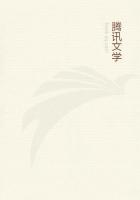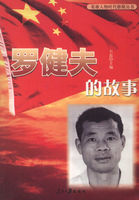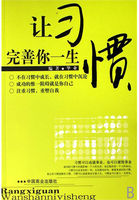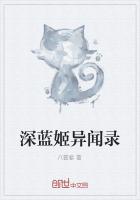I cannot quite see now how I found time for even trying to do the things I had in hand more or less. It is perfectly clear to me that I did none of them well, though I meant at the time to do none of them other than excellently. I was attempting the study of no less than four languages, and I presently added a fifth to these. I was reading right and left in every direction, but chiefly in that of poetry, criticism, and fiction.
From time to time I boldly attacked a history, and carried it by a 'coup de main,' or sat down before it for a prolonged siege. There was occasionally an author who worsted me, whom I tried to read and quietly gave up after a vain struggle, but I must say that these authors were few. I had got a very fair notion of the range of all literature, and the relations of the different literatures to one another, and I knew pretty well what manner of book it was that I took up before I committed myself to the task of reading it. Always I read for pleasure, for the delight of knowing something more; and this pleasure is a very different thing from amusement, though I read a great deal for mere amusement, as I do still, and to take my mind away from unhappy or harassing thoughts.
There are very few things that I think it a waste of time to have read;
I should probably have wasted the time if I had not read them, and at the period I speak of I do not think I wasted much time.
My day began about seven o'clock, in the printing-office, where it took me till noon to do my task of so many thousand ems, say four or five.
Then we had dinner, after the simple fashion of people who work with their hands for their dinners. In the afternoon I went back and corrected the proof of the type I had set, and distributed my case for the next day. At two or three o'clock I was free, and then I went home and began my studies; or tried to write something; or read a book.
We had supper at six, and after that I rejoiced in literature, till I went to bed at ten or eleven. I cannot think of any time when I did not go gladly to my books or manuscripts, when it was not a noble joy as well as a high privilege.
But it all ended as such a strain must, in the sort of break which was not yet known as nervous prostration. When I could not sleep after my studies, and the sick headaches came oftener, and then days and weeks of hypochondriacal misery, it was apparent I was not well; but that was not the day of anxiety for such things, and if it was thought best that I should leave work and study for a while, it was not with the notion that the case was at all serious, or needed an uninterrupted cure. I passed days in the woods and fields, gunning or picking berries; I spent myself in heavy work; I made little journeys; and all this was very wholesome and very well; but I did not give up my reading or my attempts to write.
No doubt I was secretly proud to have been invalided in so great a cause, and to be sicklied over with the pale cast of thought, rather than by some ignoble ague or the devastating consumption of that region. If I lay awake, noting the wild pulsations of my heart, and listening to the death-watch in the wall, I was certainly very much scared, but I was not without the consolation that I was at least a sufferer for literature.
At the same time that I was so horribly afraid of dying, I could have composed an epitaph which would have moved others to tears for my untimely fate. But there was really not impairment of my constitution, and after a while I began to be better, and little by little the health which has never since failed me under any reasonable stress of work established itself.
I was in the midst of this unequal struggle when I first became acquainted with the poet who at once possessed himself of what was best worth having in me. Probably I knew of Tennyson by extracts, and from the English reviews, but I believe it was from reading one of Curtis's "Easy Chair" papers that I was prompted to get the new poem of "Maud,"
which I understood from the "Easy Chair" was then moving polite youth in the East. It did not seem to me that I could very well live without that poem, and when I went to Cleveland with the hope that I might have courage to propose a translation of Lazarillo to a publisher it was with the fixed purpose of getting "Maud" if it was to be found in any book-
store there.
I do not know why I was so long in reaching Tennyson, and I can only account for it by the fact that I was always reading rather the earlier than the later English poetry. To be sure I had passed through what I may call a paroxysm of Alexander Smith, a poet deeply unknown to the present generation, but then acclaimed immortal by all the critics, and put with Shakespeare, who must be a good deal astonished from time to time in his Elysian quiet by the companionship thrust upon him. I read this now dead-and-gone immortal with an ecstasy unspeakable; I raved of him by day, and dreamed of him by night; I got great lengths of his "Life-Drama" by heart; and I can still repeat several gorgeous passages from it; I would almost have been willing to take the life of the sole critic who had the sense to laugh at him, and who made his wicked fun in Graham's Magazine, an extinct periodical of the old extinct Philadelphian species. I cannot tell how I came out of this craze, but neither could any of the critics who led me into it, I dare say. The reading world is very susceptible of such-lunacies, and all that can be said is that at a given time it was time for criticism to go mad over a poet who was neither better nor worse than many another third-rate poet apotheosized before and since. What was good in Smith was the reflected fire of the poets who had a vital heat in them; and it was by mere chance that I bathed myself in his second-hand effulgence. I already knew pretty well the origin of the Tennysonian line in English poetry; Wordsworth, and Keats, and Shelley; and I did not come to Tennyson's worship a sudden convert, but my devotion to him was none the less complete and exclusive.

